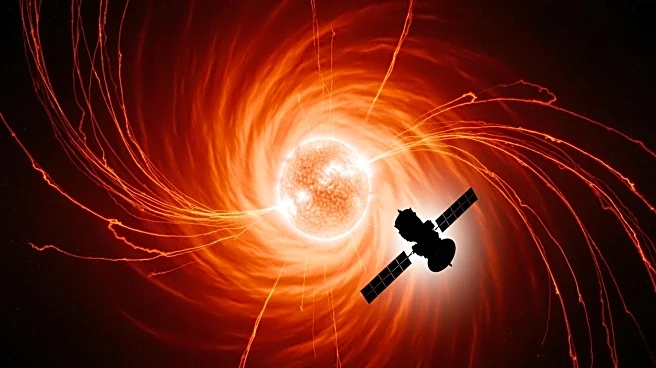What's Happening?
NASA has postponed a planned space launch due to a powerful 'cannibal' solar storm, which is expected to disrupt GPS, communication systems, and power grids. The British Geological Survey has upgraded its forecast, indicating that the storm could be one of
the largest in 20 years. The storm has already affected communications and satellite navigation, and is anticipated to reach Britain, bringing potential disruptions and a display of Northern Lights. Blue Origin, founded by Jeff Bezos, was set to launch its New Glenn rocket carrying Mars-bound NASA spacecraft, but the launch has been delayed due to the storm's impact.
Why It's Important?
Solar storms pose significant risks to technological infrastructure, including energy systems and navigation tools. The postponement of NASA's launch highlights the vulnerability of space missions to space weather conditions. The storm's potential to cause power blackouts and GPS issues underscores the importance of monitoring and preparing for such events. This situation emphasizes the need for robust systems to mitigate the effects of solar storms, which can have widespread implications for communication and energy sectors.
What's Next?
NASA and Blue Origin are assessing opportunities for rescheduling the launch based on improved space weather conditions. The ongoing monitoring of the storm's impact will be crucial in determining the next steps for space missions. Stakeholders in the energy and communication sectors will need to prepare for potential disruptions and implement contingency plans to minimize the impact on services.















